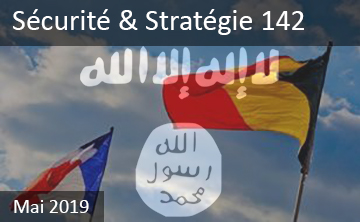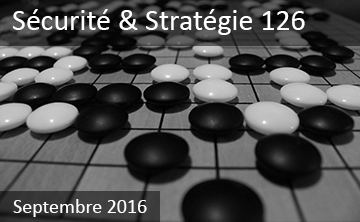
Entre « déradicalisation » et désengagement :
comparatif franco-belge
The Strategic Vision for Belgian Defence of June 2016 states that “[t]he conflict in Syria provides the clearest illustration of the link between external and internal security, namely the participation of radicalised foreign fighters in this conflict and their subsequent return to Europe” (p. 25). In the context of the fight against terrorism, the Belgian government agreement of 10 October 2014 (p. 143, § 6.4.5) mentions the holistic approach to radicalisation: “Protecting the democratic rule of law and guaranteeing our citizens’ security are absolute priorities for the Belgian government. They are nowadays under pressure from the increasing threat of radicalisation and terrorism […]. Consequently, the Belgian government will formulate a holistic approach to radicalisation within the scope of which a dialogue will be set up in the short term with the federated entities, and a policy will be put in place covering the preventive, proactive, judicial as well as administrative levels”.
What is the current state of the art, several years after this statement? What are the “de-radicalisation programmes”, or rather “disengagement programmes”? What are the policies led in Belgium and France in this regard? Are we prepared to take care of the returnees’ follow-up and to counter the non-detectable potential solitary terrorists? Can we integrate the notion of “radicalisation”, one definition of which is “the gradual and evolving adoption of a rigid thinking, absolute and non-negotiable truth, the logic of which structures the actors’ vision of the world, who – in order to impose it – use violent action ranges, acting most of the time within illegal – formalised or virtual – structures which seclude them from ordinary social referents and reflect to them a grandiose projection of themselves”.
Can we adopt this definition whereas its final meaning is debated and we observe both many confusions linked to this expression and many difficulties in identifying their referents? Some authors rather use the word “radicality”, as it covers at the same time acts, facts and behaviours that infringe well-established norms, including the reaction to these infringements by the institutions that see in it a subversion threat for the political and social order for which they are the guarantors.
This study aims to synthetically look into the sociological, psychological, religious and ideological fields regarding radicalism (exclusion and auto-exclusion, transgression/reaction), by focussing on radicalism associated with terrorism and the Islamic State’s violent operations, before addressing the multidimensional policies set up in Belgium and in France in order to fight against this extremism.
Ultimately, before proposing some specific recommendations, we will address – through a comparative and synthetic reading – the different policies implemented in Belgium and in France in order to fight against violent radicalism. At any rate, jihadism is – as Khosrokhavar puts it – a “fait social total” (comprehensive social fact), involving many facets.
As a warning before reading on: the literature on the radicalism issue is vast and amounts to millions of pages. The sole purpose of this study is to try and produce an utmost synthesis of this complex and multifaceted issue.
Télécharger le Sécurité & Stratégie 142
Lignes de recherche : Architecture de sécurité et de défense ; Menaces, défis et réponses stratégiques ; Belgique



